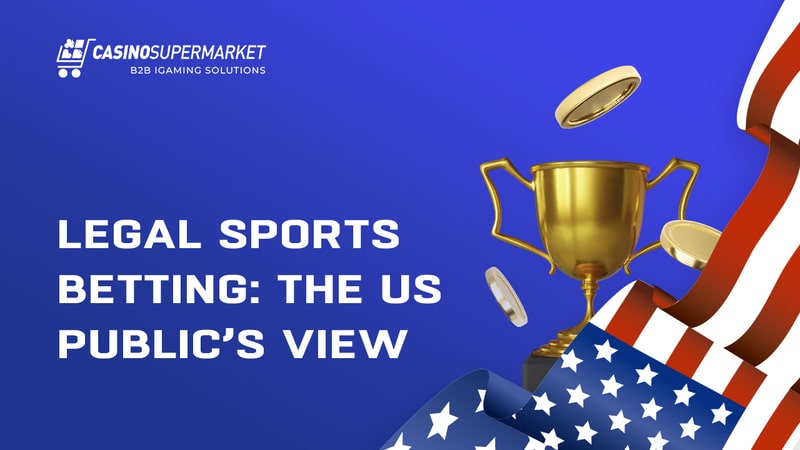
Oliver Rowe, a valuable member of YouGov who leads the Leisure & Entertainment sector, has published some of the results of his research regarding the attitudes of Americans towards betting on sports and its legality. For this, he conducted a survey among over 2000 people.

General
According to Rowe’s findings, almost half of the American public are not familiar with the restrictions and rules of betting on sports in their local area. They also are less than aware of customer protection guidelines, advertisement peculiarities, and outstanding brands in the sector. These results stress how restricted the involvement of the US population in safe betting is, even though it has been available in over thirty states since 2018.
A vast majority of people who have been examined stated that they have never wagered on any sports event either personally or through online means, or have not been interested in it. Still, there was a minority who expressed their excitement about potentially betting on a sports game in the future, with half of them claiming they have already registered with a trustworthy operator.
Rowe admits that the results of the survey are currently disappointing, as American people do not show a lot of knowledge or interest in betting. However, he expresses hopefulness for the upcoming years, stating that the market will definitely expand when wagering is intertwined with the broadcasting of sports in the area.
Advertising Campaigns
The general attitude of the US citizens in relation to advertisements and promotions of major sports betting companies seems to be divided. Almost half of the polled people stated that they have not witnessed any of these in the past month either on television or during important events. Out of those that said they have indeed seen campaigns and ads, a larger part thinks that the number of ads has increased lately, with only a tiny percentage of people thinking that it has decreased.
When it comes to people who know they can perform legal betting actions on their favourite athletic competitions both on the operator’s site and by going to a casino, a third of them said the number of ads they have seen recently was reasonable. More than two-thirds of these people have observed at least one regular advertisement per day. At the same time, over half have witnessed one sponsored campaign per day.
A small part of surveyed people expresses the sentiment of seeing too many ads from a specific operator. Among companies with particularly intrusive ads, American citizens name DraftKings, FanDuel, and Caesars Sportsbook. Rowe mentions that these companies have top-notch marketing teams, therefore their lead is unsurprising, yet he hopes that smaller names will also have their opportunity to grow and expand.
Opinions on Gambling Regulations
The polled Americans also have certain opinions on responsible gambling and the way it relates to active promotion done by betting brands. People voice their concerns about the fast spread of wagering companies and their advertising campaigns will cause some people to become addicted to the play.
Almost a half of the polled expressed worries that players will spend too much of their savings on gambling if such effective promotion continues at a similar pace. Over a half stated that the advertisers have to be specifically mindful of avoiding targeting minors. However, a small minority consider the current measures taken by providers to make sure their clients play safe to be effective.
In Rowe’s opinion, these problems need to be looked into and taken care of gradually.
Conclusions
Generally, American people seem to be rather supportive of the growing popularity that the industry in question shows. Nearly half of the polled people consider wagering to be a completely safe and legal activity. Less than a third are not supportive of it, and a fifth part of the surveyed Americans want the betting field to be banned.
All in all, understanding and taking into account these opinions is crucial for the sector’s giants to continue growing and developing in the United States.
Have questions or want to order services?
Contact our consultants:
- e-mail: manager@casino-market.com
- feedback form.
Check the information used to contact us carefully. It is necessary for your safety.
Fraudsters can use contacts that look like ours to scam customers. Therefore, we ask you to enter only the addresses that are indicated on our official website.
Be careful! Our team is not responsible for the activities of persons using similar contact details.







